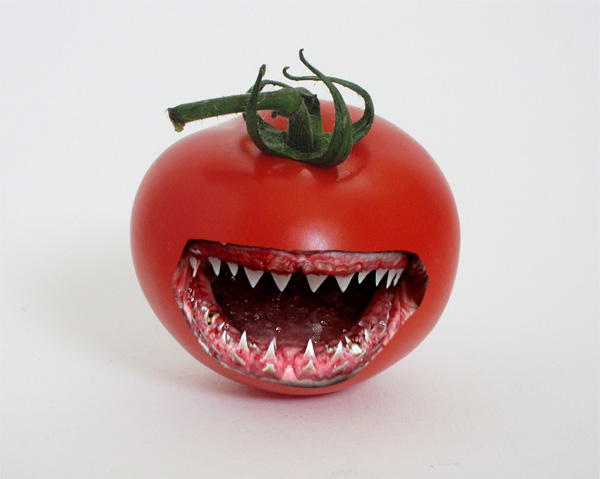The modern food industry is one that is broken in many
respects. As a whole, the industry is plagued with issues ranging from its
overbearing impact on the environment, to our warped vision on snack foods. While
for many it remains big business, the food industry has been limping ahead for
a while now, just barely functioning thanks to our incessant desire to consume.
However, according to this article, a new wave of innovation could soon be
approaching as investors look towards Silicon Valley start-ups to
revolutionise the food on our plates.
 |
| Not quite the future of food. (yet) |
The article explores the potential future of the food we eat. We aren't talking about those futuristic nutrient pastes, or entire
meals in pill form just yet, there are more pressing issues at hand. By
researching how food is delivered, where it’s used, why, and the implications
it has for small businesses and consumers, innovators are looking to give the
food industry a long overdue reboot.
One investment specialist remarks...
“Consumers are interested in
sophisticated experiences that are beautifully delivered, which we've seen
happen on the Web and with products like the iPhone… Now, we’re seeing that happen with food and beverage.”
Highlighting this point, Google recently
launched its own smart and stylish Grocery Delivery service in San Francisco, likely
in order to test the grounds for future investments. With Google on board, and
a large number of start-ups addressing the issue, the potential impact of a new
wave of innovation could be significant, however I doubt that the big players
in the industry will be quick to lie down and roll over. Monsanto’s tight grasp
on the biotech behind GM crops is already a worrying start.
 |
| We're hardly looking at Killer Tomatoes when we talk about GM food |
At the risk of being controversial, I have to say that I believe that GM foods are in
fact necessary to satisfy our increasing food demands in the future, and allow countries with harsh climates to grow crops where they would otherwise be unable to without a
GM breed. The danger is in the control that companies like Monsanto exert over the communities, which by choice or not, are using Monsanto branded GM plants.
The range of problems in this industry is so vast that I could go on for pages
discussing them. Where do I stand on the promotion of junk food, the eating
habits of children, the waste of American wheat farmers, subsidies, patents,
deliveries , additives, preservatives… and the list could go on until I run out
of breath, but there are many better informed authorities that you should be
listening to regarding many of these things.
My point is that the path to a better food future isn't exactly
clear, neither is it without its speed bumps, but it is time for a revolution. At least I can
take comfort in knowing that serious thought is going on, and for once this
thought isn't dominated by a few key players in a locked down industry.
-Alex Smith
No comments:
Post a Comment